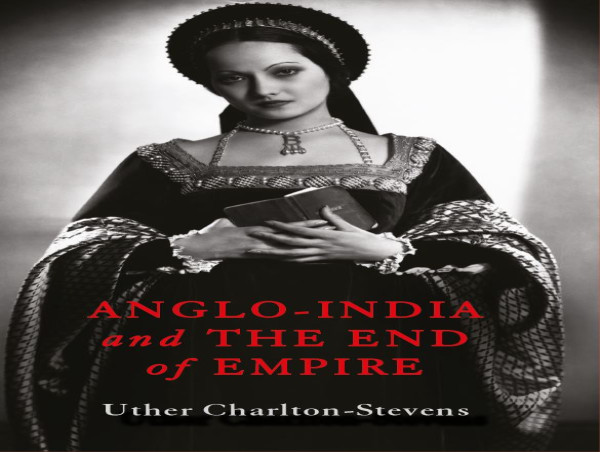After the millennium, ever so slowly, drip by drip, histories like William Dalrymple’s ‘White Mughals: Love and Betrayal in Eighteenth-Century India’ started to appear, mainly focused on early romances between East India Company officers and elite Indian women, like James Achilles Kirkpatrick and his young bride, a Hyderabadi Begum named Khair un-Nissa. Durba Ghosh's ‘Sex and the Family in Colonial India: The Making of Empire’ later discussed the other side, including the more commonplace couplings of British and Irish soldiers with local women. Still, Anglo-Indians as Anglo-Indians, and the Anglo-Indian community as a community, were rarely the focus.
This often meant fitting Anglo-Indians into other people’s stories, not telling Anglo-Indians’ own story. But around the world, from California to Tamil Nadu, from Britain to Australia, diverse members of the Anglo-Indian diaspora were growing restless over this dearth of representation. A new generation of authors from within the community, including Blair Williams, Shirley Gifford-Pritchard, Ian Smith, and Harry MacLure, begin to emerge, to explore collective memories and individual family stories and record them for posterity.
Moreover, since 2021, and in time for the forthcoming Anglo-Indian Reunion in Canberra, Australia in March of this year, four books covering a range of Anglo-Indian experiences right from the beginnings of Anglo-India, through the colonial era, the independence of India and Pakistan, up to the present, have been published.
In 2021 Anglo-Indian Identity: Past and Present, in India and the Diaspora edited by Robyn Andrews and Merin Simi Raj, brought together chapters from twelve authors. The Review describes Anglo-Indian Identity as an “original and thought-provoking book”, “global in scope… a seminal contribution to scholarship”, and as “an international collaborative effort by leading scholars in Anglo-Indian Studies… [which] examines the community in India and diverse diasporic locations such as New Zealand, Britain, Australia, Pakistan and Burma.”
Another collaborative effort – Beyond the Metros: Anglo-Indians in India's Smaller Towns and Cities – edited by Robyn Andrews and Anjali Gera Roy, “focuses on Anglo-Indians residing in a number of small towns and cities, away from the metropolitan centres of modern India, such as Kolkata, Mumbai, Delhi and Chennai.” The Review notes how the book “provides a socio-historical account of what it means to be an Anglo-Indian in cultural and materially varied environments, highlighting the impact on the formation of identities.”
In the summer of 2022, Uther Charlton-Stevens’ Anglo-India and the End of Empire was released by Hurst Publishers, UK, closely followed by a US edition with Oxford University Press. Anjana Banerjee describes the book in the International Journal of Anglo-Indian Studies as “monumental”, “an absorbing and compelling read for erudite scholars and interested general readers alike”, and “a vivid and stimulating account” that “is essentially a rational yet deeply empathetic enquiry, enriched as it is by detailed and fascinating evidence culled from a very wide range of primary and secondary sources. As a diasporic Anglo-Indian with familial roots in Bangalore… [Charlton-Stevens] adds an insider’s intriguing trivia and anecdotes to embellish his narrative.”
For the Asian Review of Books, Maximillian Morch calls Anglo-India “a rich history”, both “comprehensive and reflective”, and “a tightly-written but highly informative historical summary of how this community has historically been overlooked or under-analyzed in traditional annals of Indian history… [that] makes a compelling case for why the study of this community, which has been at the centre of so many key aspects of recent Indian history, is important if we want to better understand India’s past and present.”
While in the International Journal of Asian Studies Prem Singh Gill describes how “Charlton-Stevens’ poised and judicious methodology, fortified by scrupulous research and evocative storytelling, bestows upon this work the status of indispensable reading”, “pioneers new colors and textures in the tapestry of India’s history”. Taking “the reader on a captivating historical journey”, Anglo-India “audaciously challenges established historical paradigms”, “fills a profound void”, and “emerges as a significant and multifaceted masterpiece within the realm of Indian history.”
In the autumn of 2022 Barry O’Brien’s The Anglo-Indians: A Portrait of A Community was published by Aleph Book Company and has since been widely reviewed in the Indian Press. Karan Thapar’s column in Hindustan Times described O’Brien’s The Anglo-Indians as “a gem” and “a cornucopia of encyclopaedic information” on the community, “with a conversational though not literary style”, and Argha Kr Banerjee in The Telegraph commends it as “a treasure trove, ebulliently tracing the origins, identity, integration and journey of Anglo-Indians in the nation-building process” that “should be read by those in and out of the community.”
In The Hindu Business Line, Partab Ramchand’s review notes how the question of “who is an Anglo-Indian?” remains elusive to many outside the community and celebrates how “accurately… O’Brien provides the answer in this well-researched book”. Kushalrani Gulab, writing for The Asian Age, calls it “as comprehensive as any book about any community can be”, while Ranjona Banerjee in The Business Standard appreciates O’Brien’s overturning of stereotypes about “one of India’s most intriguing and colourful communities.” Acclaimed travel writers Hugh and Colleen Gantzer in The Tribune judge that this “engagingly written book… is likely to become a classic.”
Uther Charlton
Charltons
email us here
Visit us on social media:
Facebook
![]()






